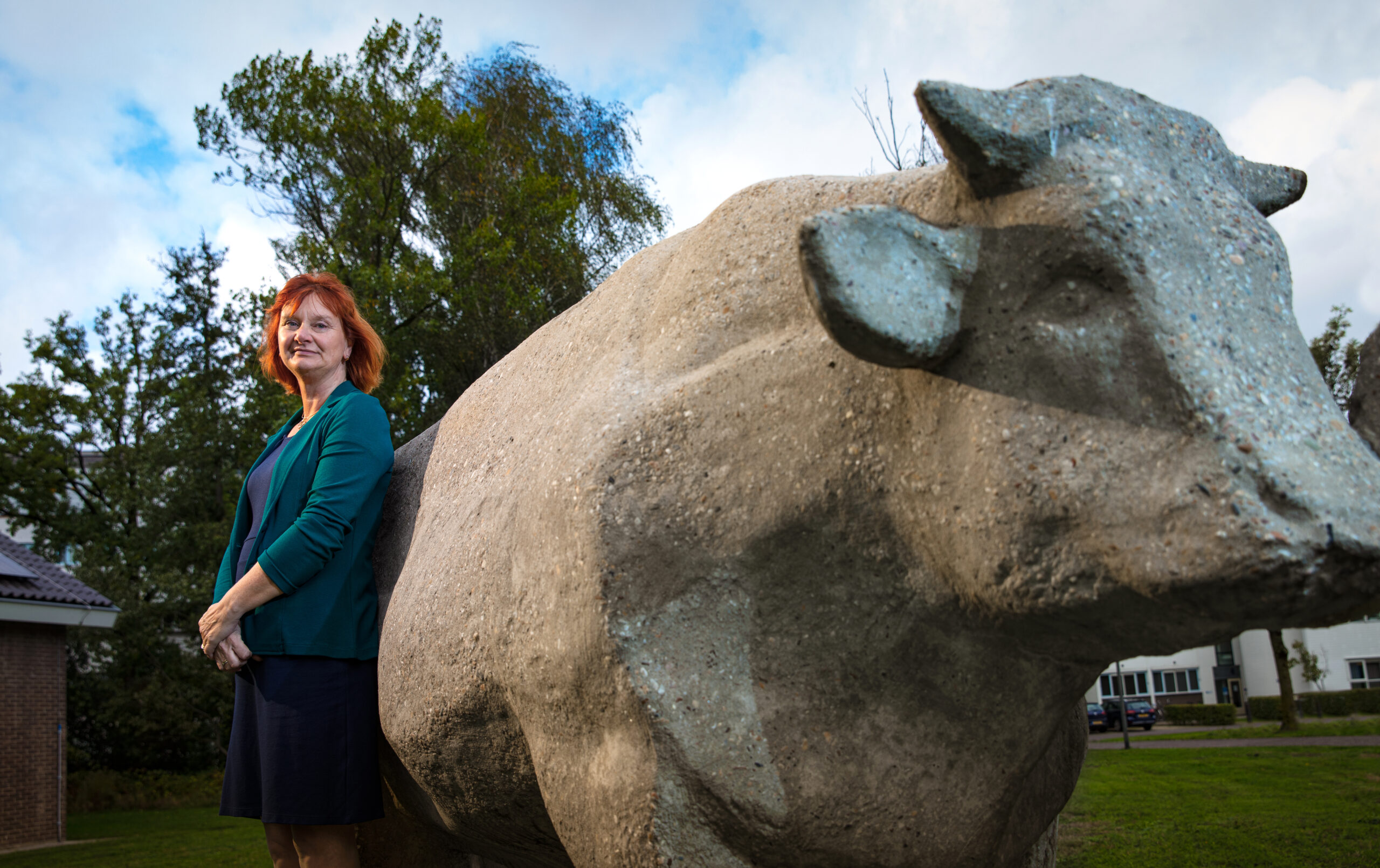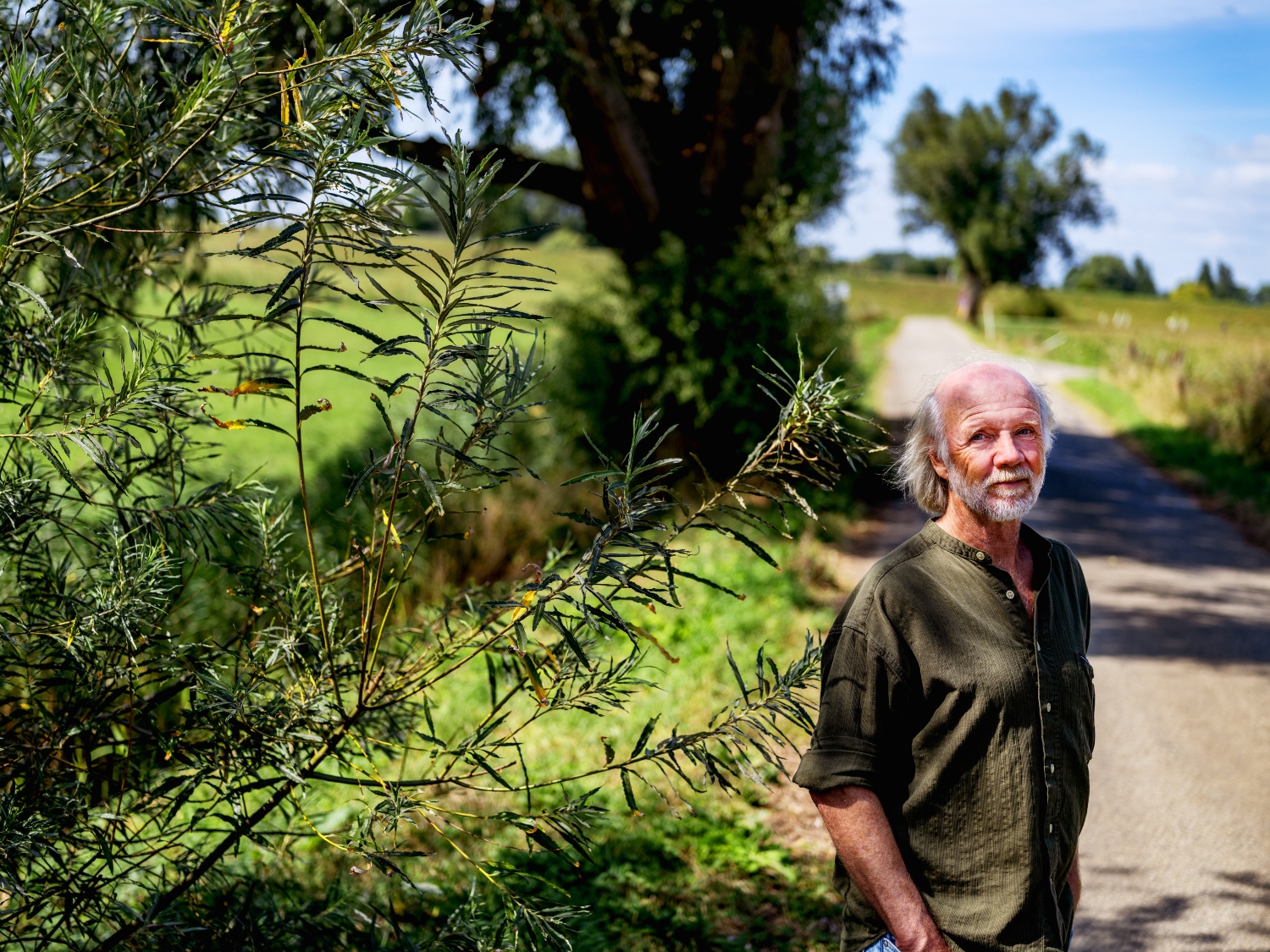‘Animals are more resilient than you might think,’ says Annemarie Rebel, special professor of Healthy and Resilient Livestock. She thinks it is time we made better use of that fact.
Individual animals and people react differently to similar challenges, such as pathogens or stressful changes to their environment. Animals that can cope with such challenges – those that make a fast recovery – are labelled resilient. Annemarie Rebel, professor by special appointment of Healthy and Resilient Livestock, does research with her group on why individual animals react differently. Her aim is to increase the health and resilience of animals. ‘We hope that this will improve their wellbeing, make them less vulnerable to disease and reduce the use of antibiotics and other drugs. That has a positive effect on the health of both humans and animals.’
A dip is OK
‘Animals can cope with more than we think they can, but our present livestock farming systems don’t make the most of their qualities.’ Rebel thinks an animal should be given the chance to adapt to circumstances. ‘A question of changing the way we think about it. In today’s livestock farming, everything is controlled: the animal lives in a system in which temperature, diet and air quality are kept constant, and where disease must be prevented. But we don’t have to intervene at the slightest glitch. An animal can have a bit of a dip and come through it alright. The same thing goes for people: sometimes you need to take it easy. No one can be on top form all the time.’
There should be scope for this even in intensive livestock farming, Rebel thinks. ‘We shouldn’t stop vaccinating animals, but nor should we hermetically seal them off from the outside world, giving them no chance to activate their own immune systems. Give animals the chance to deal with minor challenges such as changes of feed, illness, or a change in the climate in the barn. They will develop resilience that way. We are researching where improvements could be made within existing farming systems, so that we make more use of animals’ intrinsic characteristics, such as their immune systems. Then they will cope better with challenges.’
There’s more to health than not falling ill
Mothers
Those intrinsic characteristics are influenced by various factors, such as experience at a young age, housing, diet, genetics and the experience of the mother animals. ‘We know from human research that children born during the Dutch famine of 1944-45 need less food as adults because the mothers didn’t have much to eat. And we know that elephant calves born to mothers that were pregnant during a dry period need less water than others. These are biological adaptation mechanisms in which the conditions the mother experiences prepare her offspring for life. In livestock farming, mother animals and their offspring are two different supply chains that we look at separately. But this natural mechanism is at work here too. We discovered for example that the diet of a sow influences the development of the gut and the immune systems of piglets, which affects them later in life and not just in the period that they are with their mother.’
According to Rebel, increasing animals’ resilience calls for a good understanding of their needs. There is more to health than not falling ill. It is also a matter of wellbeing. ‘There are rules for safeguarding wellbeing, concerning housing for example. But that doesn’t meant that if you meet all the conditions, the animals’ welfare will be fine.’
That humans like playing with a ball doesn’t mean a pig will like it too
It is not easy to measure health and wellbeing. ‘But by placing sensors in the shed, for example, we can see if an animal eats less, lies down a lot or becomes aggressive – things that can point to it not feeling good. And we don’t just look at the absence of negative behaviours; we also try to measure positive emotions. For example, we know that pigs enjoy playing with a metal chain, but that a hard ball frustrates them. That we humans like playing with a ball doesn’t mean a pig will like it too.’
Go with the flow
Rebel hopes these insights will help the livestock sector make optimal use of animals’ resilience. In an ideal system, animals would be stimulated and their wellbeing facilitated, rather than controlled. ‘By looking at the factors affecting an animal’s health and wellbeing, we have put the first pieces of the puzzle in place.’ To finish off the puzzle, Rebel wants to bring as many different disciplines together as possible. ‘So we are working on circular feed concepts within the Food Valley Region, together with technicians, feed manufacturers, environmental scientists, both human and animal health scientists, plant scientists, and so on. You can’t take that kind of interdisciplinary collaboration for granted in the sciences, and it’s not easy. But it is good and enjoyable, and we learn a lot from each other. It’s not just animals but people too who sometimes have to learn to go with the flow.’

 Photo: Eric Scholten
Photo: Eric Scholten 

